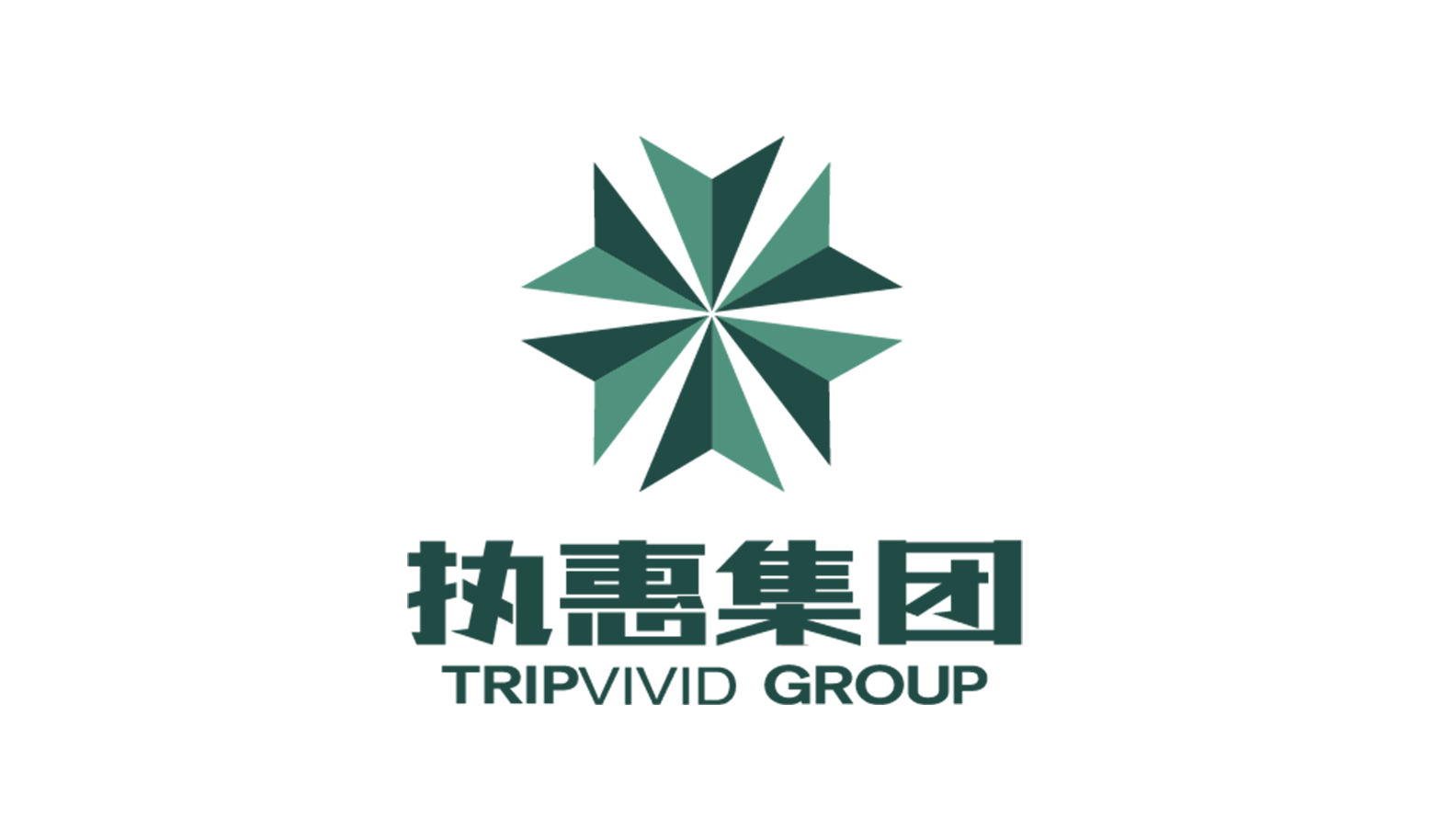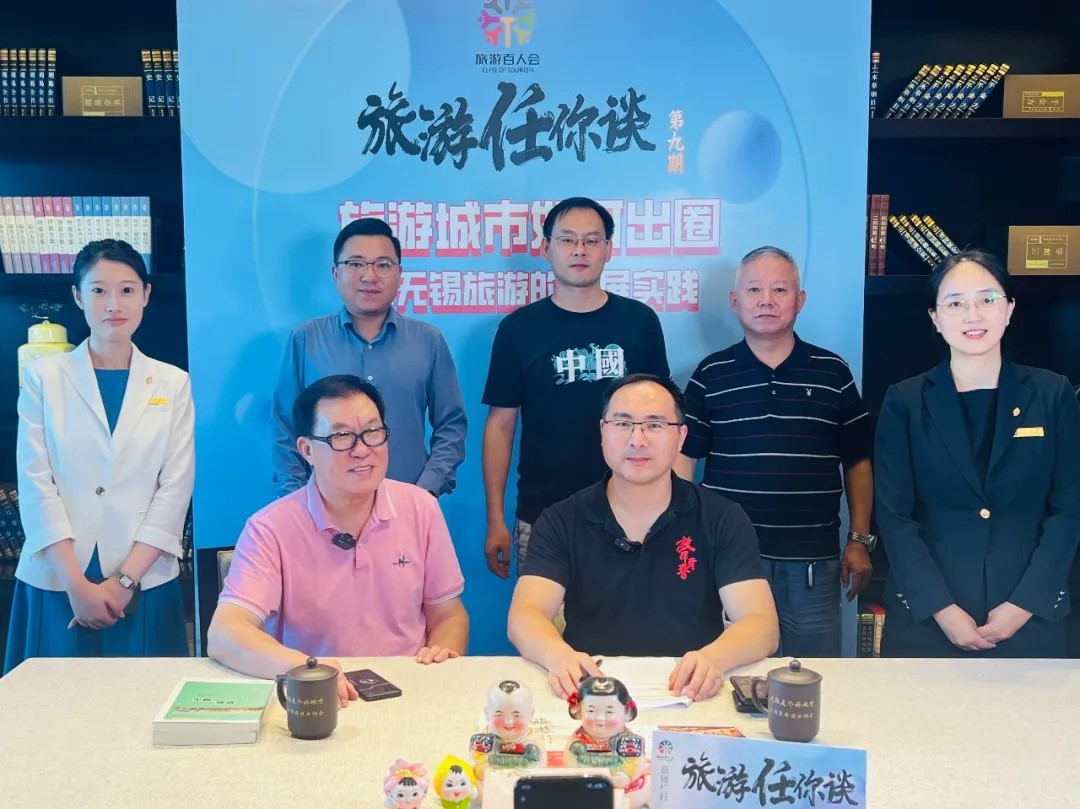New users automatically create accounts after logging in
Login188bet sports betting app download

188bet online sports betting
Origin
The United States in the 1980s was an era of hostile corporate mergers and acquisitions。Although the Williams Act passed in 1968 curbed the extremely coercive "Saturday Night Special" form of hostile takeover,However, the "two tier front-end loaded tender offer" which inherits its coercive characteristics has not disappeared (regarding the "Williams Act"、“Saturday Night Market Special Offer” and “Double-tier Tender Offer”,For details, please refer to the related article "Behind the scenes of the Unocal judgment" to be published by "Comparative Corporate Governance")。
In this wave of malicious mergers and acquisitions,A group of "corporate raiders" have emerged。They have targeted companies whose stock prices are undervalued for various reasons,Launch attacks on these companies using the form of "double-tier tender offer"。However,“Company snipers” often don’t focus on the long-term operating income of the acquired company,But the short-term asset value or the cash flow owned by the company。A common strategy used by “corporate snipers” includes first-round acquisitions at a relatively small cost,After gaining control of the company,Obtain financing using company assets as security;Or after acquiring shares sufficient to pose a threat to control of the company,Do not proceed with the acquisition,Instead, seek the company to buy back its shares at a premium,commonly known as "greenmail blackmail";The most damaging thing is after gaining control of the company,Split the company's assets and sell them for cash。Boone Pickens and Carl Icahn were both famous "corporate snipers" of that era,Icahn’s acquisition and sale of TWA (Trans World Airlines), a well-known American airline, is a classic example of asset divestiture。
In order to prevent this kind of disregard of the company's long-term interests,Especially coercive and hostile mergers,The tireless efforts of a prominent business lawyer on Wall Street。He is Martin Lipton, the father of "poison pills"。
Lipton graduated from the Wharton School of the University of Pennsylvania,Received a Bachelor of Laws (LL) from New York University School of Law in 1955.B.,later JD) degree,Served as editor-in-chief of the New York University Law Review。After graduating from law school,He first appeared in the Federal District Court for the Southern District of New York (U which hears securities cases..S. District Court for the Southern District of New York) serves as a clerk,Later worked for Seligson, a small law firm with 10 people, Morris & Neuburger。During this period,Lipton met colleagues and NYU Law alumni Leonard Rosen and George Katz。
After 7 years of employment,In 1965 these three colleagues and alumni co-founded Wachtell with Herbert Wachtell, also a graduate of NYU Law School, Lipton, Rosen & Katz Law Firm。50 years later,This law firm was not considered a “white-shoe” law firm on Wall Street,referring to traditional WASP elite law firms,Like Cravath, Swaine & Moore, Sullivan & Cromwell,Simpson Thacher & Bartlett et al.’s place to be seen,has become a top-notch law firm that has consistently ranked first in profit margins—not revenue generation—in the United States for many years。
Since the late 1970s,Lipton has written numerous articles on the dangers of “corporate snipers”,And began to design defensive measures。The original inspiration for "Poison Pill" came from a trip to Texas in the winter of 1982。December of this year,Lipton helps Texas-based El Paso natural gas company defend against takeover by Burlington Northern Railroad,Fly from New York to Texas。Because El Paso was already heavily in debt at the time,Therefore the previously common self-tender cannot be used to resist Burlington。
While looking through the company’s financial statements,Lipton discovered that El Paso has not issued authorized preferred shares。So,Lipton had a flash of inspiration,Thought of reducing El Paso's appeal to Burlington by issuing preferred stock。His plan is to issue preferred shares to existing shareholders of El Paso in the form of dividends,Preference shareholders can vote individually to elect directors representing themselves,So,Existing shareholders effectively gain dual power to elect directors,Thus making it difficult for Burlington to control El Paso’s board of directors。Burlington filed a lawsuit,But the Delaware court upheld Lipton’s defense。Finally El Paso and Burlington completed the merger through friendly negotiations。To this point,Distribution rights to shareholders in the form of dividends,This plan to build a defense against hostile takeovers has taken root in Lipton’s mind。At this time,There is still half a year until the birth of the “poison pill”。
Birth
Brown-Forman Still Company is the fourth largest still company in the United States,Specializes in manufacturing and selling high-end liquor。By 1983,This family business is in its fifth generation,Business is booming,Sales reached US$900 million in 1982 (equivalent to US$2.2 billion in 2015),Profit of nearly 100 million US dollars (equivalent to 2 in 2015.USD 400 million)。1983,The owner of this company, William Lee Lyons Brown, is interested in Lenox Inc, a famous company that produces high-end porcelain.,At that time,Lenox is about a quarter 188bet app the size of Brown-Forman。
For the acquisition of Lenox,Brown-Forman’s offer is generous,Lee Brown quoted a high price of $87 per share,The share price of Lenox on the New York Stock Exchange on the previous trading day was less than $60,The earnings per share of the previous year was only 4.USD 13。Nevertheless,Lenox board still wants to resist takeover。So,Lenox hired Martin Siegel of investment bank Kidder Peabody (who later was convicted of insider trading,His story was chronicled in the Pulitzer Prize-winning non-fiction book Den of Thieves) and Martin Lipton served as a consultant in fending off the takeover。
This time,Lipton-designed defense targets Brown-Forman as family business,More than 60% of the voting rights are concentrated in the Brown family,Thus attaching great importance to the weakness of family control of the company。Lipton’s specific plan is to distribute non-voting convertible preferred shares to existing Lenox shareholders in the form of dividends,The distribution ratio is 1 share of this preferred stock for every 40 shares of common stock。If Lenox is absorbed and merged by Brown-Forman,Then,Lenox shareholders who obtain convertible preferred stock can convert their preferred stock into Brown-Forman common stock at a price well below the market price。In this way,The Brown family’s equity in their company will be greatly diluted,Consequently possible loss of control。Siegel vividly calls this defensive measure a “poison pill”。To this point,“Poison Pill” is officially born。
The direct consequence of Lenox’s defense plan is that Brown-Forman further raised the acquisition price to $90 per share,And promised Lenox Chairman John Chamberlin a board seat in the merged company。final,Although the Brown family did not swallow this "poison pill",However,Its power has begun to appear。
Established
The “poison pill” faced legal challenges as soon as it was born,What finally established its legal status was the 1985 Delaware Supreme Court decision in Moran v. Household International Inc.Judgment in a case。Household is a holding company,Its subsidiaries are mainly involved in financial services、Transportation and commerce industry。In February 1984,Household has not yet become a direct target of "corporate snipers",But the vice president of the company has felt that his company is in danger of being taken over by a hostile takeover。At this time,Compared to its net asset value,Household’s stock price is severely undervalued。So,The company’s management decided to hire Martin Lipton to work with investment bank Goldman Sachs to provide it with a plan to fend off potential takeover threats。Lipton designed the first generation “poison pill” which we will introduce in detail below。
But,Meanwhile,Mr. Moran, director of Household and president of Dyson-Kissner-Moran Company (DKM), began to discuss a leveraged buyout by DKM,LBO) merger and acquisition of Household。Although,When Lipton’s “poison pill” design for Household was launched,Moran’s acquisition plan is still in the discussion stage,But the "poison pill" will obviously cause trouble for this plan。So,Mr. Moran and his DKM take Household to court,Demand the revocation of the “poison pill”。
Fighting over this lawsuit,Both parties have hired a luxurious lineup of lawyers。Household is naturally managed by Martin Lipton himself,Moran hired another elite Wall Street law firm, Skadden, Arps, Slate, Meagher & Flom.
It is worth mentioning,Opposite of Lipton,Skadden’s naming partner, Joseph Flom, has for many years been in favor of the free flow of control of the company,Consistent with the views of the Chicago School of Economics。In addition,Fried, another famous law firm on Wall Street, Frank, Harris, Shriver & Jacobson serves as amicus curiae,That is, a person who provides legal advice to the court as an independent third party in British and American litigation,The legal opinions it provides often involve issues with broad social impact,Not limited to the interests of both parties) appeared in this lawsuit。
Joseph Flom,Martin Lipton and Fried Frank’s partner Arthur Fleischer Jr.Known as the "Three Elites" among Wall Street M&A lawyers of that era。Therefore,It is no exaggeration to say,Moran v. The Household case brought together the strongest lineup of American corporate mergers and acquisitions lawyers。
Before presenting the court’s decision,Let’s first take a look at what kind of “poison pill” Lipton designed for Household。This defense plan against a potential takeover is 48 pages long,The essence includes the following four levels。
First,The Household board of directors distributes a special stock subscription right (stock rights) to ordinary shareholders on a 1:1 basis based on the number of shares,As special dividend。Different from usual stock subscription rights,This special subscription right can only be used to purchase a specific preferred stock of the company,The exercise price is not lower than the market price,On the contrary, it is much higher than the market price,And its duration is longer than ordinary stock subscription rights,reached 10 years。
After this right is issued,Until the triggering events described below occur,Shareholders cannot exercise their rights immediately,Also not transferable separately from Household’s common shares。The reason for issuing stock subscription rights,Because under the Delaware Corporation Law,The Board of Directors may issue such rights at its sole discretion,Without shareholder vote and approval。Therefore,The official name of a “poison pill” is a shareholder rights plan。Second level design related activation matters,That is, the conditions for exercising special stock subscription rights。Household’s “poison pill” has two triggering conditions: one is to issue a takeover offer for 30% or more of Household’s shares,Second, any institution or individual acquires 20% or more of Household’s issued shares。One of the two,Special stock subscription rights can be activated。Once activated,This right can be transferred 188bet sports betting app download and circulated separately from the ordinary shares。So,Anyone who intends to acquire Household will have to acquire its common shares and this special stock subscription separately,It undoubtedly increases the difficulty of mergers and acquisitions。However,The real “toxicity” of the “poison pill” is not yet here。After Household’s “Poison Pill” is activated,The holder of each special subscription right can subscribe for 1% of the special preference shares at a price of US$100,That is to say, the price of each special preference share is as high as 10,000 USD。At that time, the market price of Household common stock was only $30-33,Dividend income per share is no more than 1.USD 75。Obviously,Set such a high exercise price,Actually, we don’t want Household shareholders to actually buy that special preferred stock (this kind of uneconomical right is called out-of-the-money options)。Of course,This is not the "toxicity" of the "poison pill"。The purpose of Lipton's design is just to avoid the special stock subscription rights being considered as a sham security specially designed to deal with acquisitions,Thus violating the relevant provisions of the Delaware Corporation Law。
The “toxicity” of Household’s “poison pill” is reflected in the third-level design。After the "poison pill" is activated,If Household is further absorbed and merged by the acquirer,And the consideration for the merger is the acquirer’s securities,Then,The holder of each special subscription right can purchase shares of common stock of the acquirer with a market value equal to $200 for $100, which is actually the surviving company after the merger。
Not the same as buying Household’s own preferred shares,If the holder of special subscription rights exercises the rights by purchasing the acquirer’s common shares,Then,The exercise price is only half of the stock market price,Obviously very attractive to rights holders (at this time,Special call options become in-the-money options),This is the real possible exercise method。However,In this way,After absorption and merger,The acquirer’s own shares in the company may be significantly diluted,Thus losing control of the company。The way Household’s “poison pill” exerts its “toxicity” is exactly the same as the earlier Lenox’s “poison pill”。
The reason why the acquiree can allow its shareholders to purchase the acquirer's stock at a low price after the company is acquired,It is because the company is merged under the Delaware Corporation Law,The surviving company will inherit the rights and obligations of the acquired company - including contractual obligations to its shareholders,The essence of the "poison pill" is a contract between the company and its shareholders。Due to Lenox and Household’s “poison pill” allowing acquiree shareholders to purchase acquirer’s stock,So it is called "flip-over pill",They are the first generation of “poison pills”。
Last,The fourth level of Household’s “poison pill” design is about the redemption of the “poison pill”。Here,Lipton designed different redemption conditions for the two activation items of the "Poison Pill"。If the "poison pill" is activated due to the first event - that is, a tender offer for 30% or more of the shares,Then,The Board of Directors of Household has the right to redeem special subscription rights at a price of 50 cents per right at any time prior to exercise by the holder of such rights。However,If the "poison pill" is activated due to the second event-that is, acquiring 20% or more of Household's outstanding shares,Then,The "poison pill" can no longer be redeemed;In other words,For the second activation matter,The board can only redeem the poison pill before it is activated。
Through such a redemption design,Lipton intends to show that the "poison pill" is mainly aimed at the coercive "double-tier tender offer that is heavy on the front and light on the back"。Therefore,If the acquirer’s second-round acquisition conditions are fair,No coercion,The board of directors can redeem the “poison pill”,Approval for its acquisition。And for those who are unwilling to offer Household shares at a premium,Buy stocks at market price,A "corporate sniper" who is trying to control the board of directors to implement the second round of acquisitions,Once activated, the "poison pill" will last forever,Thus making it impossible to realize his plan。
After seeing the essence of Household’s “poison pill”,Can this measure to prevent potential acquisitions be recognized by the court?The Delaware Supreme Court’s attitude towards this is clear and affirmative。Even in the opinion of Judge Moore who heard the Household case,It is almost natural for the court to reach this conclusion。The reason why,The reason lies in another Delaware Supreme Court decision issued 5 months ago - Unocal Corp. v. Mesa PetroleumCo.。In Unocal Judgment,The court confirms that the target company’s board of directors has the right to take defensive measures against the takeover bid,The "poison pill" is exactly such a measure。
The Unocal decision also established a "two-prong test" standard for takeover defense measures。According to this standard,The target company’s board of directors must first prove that its defensive measures are not solely to protect its position,But to protect against real threats to the company。To this,The court held that there was no claim that the Household board adopted the “poison pill” to protect its position,Opposite,The board of directors fully proved that the company may be acquired under coercion;At the same time,The adoption of the “poison pill” was extensively discussed by the board of directors,And listened to detailed opinions from lawyers and investment bank consultants,So it is not a rash decision。
Next,For the second prong of the “Two Prongs Test” – defensive measures must be proportional to the actual threat,Delaware Supreme Court holds that Household’s “poison pill” does not prevent reasonable non-coercive tender offers,It will not hinder shareholders’ right to vote by proxy。Besides,Compared to other forms of prevention such as self-acquisition,The “poison pill” will not 188bet app cause serious financial burden to the company。Accordingly,The court agreed that the “poison pill” precautionary measure was not disproportionate to the threat faced by the company。
According to Unocal Judgment,Once the "Double Fork Test" criteria are met,The board of directors’ decisions will be protected by the “business judgment rule”,Courts no longer judge the substantive content of decisions (regarding Unocal v. Details of the Mesa case,See the upcoming related article "Behind the scenes of the Unocal judgment" in "Comparative Corporate Governance")。
Mr. Moran's final challenge to Household's "poison pill" is that Household's board of directors does not have the authority to issue special subscription rights that would allow shareholders to purchase the acquirer's stock。To this,The Delaware Supreme Court held that it is a common condition of convertible security to allow the right holder of a company's securities to acquire the securities of the company's acquirer,Known as the "anti-destruction clause",Aimed to avoid the possibility of convertible security holders losing their conversion because the company is acquired。At this point,A “poison pill” is no different from an “anti-destruction clause”。
That’s it,Lipton’s “poison pill” design wins legal victory。However,The first generation of "poison pills" was not impeccable in business practice - its "toxicity" was not strong enough。
Evolution
The first generation of “externally turned poison pills” had some fatal weaknesses,Therefore unable to effectively resist hostile takeovers。The key disadvantage is that it only occurs when the acquirer intends to completely acquire the target company,"Toxicity" will occur。If the acquirer only obtains control of the target company,But no further implementation of comprehensive mergers and acquisitions,The "external poison pill" cannot have the effect of diluting the acquirer's equity。
A famous example in this regard is the acquisition of Crown Zellerbach by financial tycoon James Goldsmith。Although Crown Zellerbach has the typical "external poison pill",But after Goldsmith obtained enough equity to control the company,I will no longer acquire the remaining equity,So,The effects of the "poison pill" cannot be transferred to Goldsmith's own company。Even more unfortunate,Crown Zellerbach’s “poison pill” has no redemption conditions。So,When the "poison pill" was activated due to Goldsmith acquiring more than 20% of the shares,It will always exist。The consequence is: From now on, no matter who - even a well-intentioned acquirer - wants to completely acquire Crown Zellerbach,The equity it owns will be diluted by the "poison pill"。So,Crown Zellerbach’s “poison pill” turned out to be Goldsmith’s weapon to prevent others from taking Crown Zellberbach away from him。
In addition,To counteract the effectiveness of the first generation of “poison pills”,The acquirer can also stipulate in its own company's articles of association that the acquirer's original shareholders can obtain the additional shares issued by the acquirer under the same conditions as the target company's shareholders after the "poison pill" is overturned.。The acquirer can also set a call option for himself,Allows it to purchase additional shares issued for the purpose of acquiring the target company at a price below the market price。
To overcome these shortcomings of the first generation of “poison pills”,Lipton designed the second generation of “poison pills”。The difference between the second generation "poison pill" and the first generation is that once the "poison pill" is activated - it is usually still conditional on obtaining 20% of the issued shares of the target company,Shareholders in the target company other than the acquirer can purchase the target company’s own stocks at half price。So,The acquirer’s equity in the target company will be greatly diluted,Thus losing the possibility of gaining control。Because the shareholders of the target company obtained the shares of the target company at a low price,So the second generation “poison pill” is called the “flip-in pill”。
The key to the effectiveness of the "inside-out poison pill" is to treat the acquirer differently from the shareholders of the target company other than the acquirer。The reason why this “poison pill” design of giving different treatment to the same type of shareholders of the company is legally feasible,Because of the previous Unocal v. Mesa judgment has affirmed defense against hostile takeover,It is legal to discriminate against acquirers who are shareholders of the target company。
Another characteristic of “inverted poison pills” is that they are generally accompanied by the right of redemption,The target company’s board of directors can redeem the “poison pill” at a very low nominal price。In this way,The board of directors will have room to respond flexibly to the takeover bid。Acquirers must avoid the “toxicity” of “poison pills”,An agreement must be reached with the target company’s board of directors,Let the latter agree to redeem the "poison pill" first。So,The “poison pill” actually becomes a bargaining chip between the target company’s board of directors and the acquirer,Conducive to obtaining better acquisition conditions for the shareholders of the target company。
To further strengthen the effect of "poison pill",The target company can also establish a staggered board,It is stipulated that only 1/3 of the seats will be replaced each time the directors are rotated。In this way,Even if the acquirer attempts to replace the original directors of the target company with their own persons through a proxy contest,And then redeem the “poison pill”,It will take at least two rounds of turnover to control a majority of the board of directors。
Following the "inverted poison pill",The third generation of “poison pills” appears again,Its two main variants are called "dead hand pill" and "no hand pill"。The former refers to the fact that the director of the target company who was in office when the "poison pill" was activated can redeem the "poison pill";The latter stipulates that within a period of time (such as 6 months) after the control of the target board of directors changes,188bet sports betting app download “Poison Pill” cannot be redeemed。However,Neither form of third generation “poison pill” has been supported by Delaware courts (the court’s opinions are found in Carmody v. Toll Brothers and Mentor Graphics v. Judgment in the Quickturn Design Systems case)。Currently,A common form of “poison pill” is a combination of first and second generation,Has the effect of “exversion”,It also has the effect of "inversion"。
Popular
Moran v. After Household Judgment,“Poison pills” quickly became popular,In just one year or so after that,The number of U.S. public companies using “poison pills” increased by 8.5 times。1990,More than half of listed companies have adopted “poison pills”,By 1999 this proportion rose to 56%,In 2000, 60% of listed companies had “poison pills”。At the same time,As mentioned before,“Poison pills” continue to evolve,Second and third generation forms appeared。
Early 21st century,“Poison Pill” traveled across the ocean and came to Japan。However,In Japan, which adheres to the "principle of shareholder equality",The “poison pill” that discriminated against acquirers who were shareholders of target companies was immediately challenged by the judiciary。
In 2005, Japanese Internet service provider "Livedoor" acquired Nippon Broadcasting System Inc.) Nearly 40% of stocks,And intends to acquire it。To resist the “Livegate” mergers,To maintain control of parent company Fuji TV,Nippon Broadcasting Corporation launches "poison pill","Livegate" sued Japan Broadcasting Corporation to court,Asking the court to prohibit the implementation of the “poison pill” plan。The Tokyo District Court and the Tokyo High Court successively ruled in favor of “Livedoor”’s request,Rejected Nippon Broadcasting Corporation’s “poison pill”。However,The Tokyo High Court conditionally left room for launching the “poison pill” in its judgment。This condition is that the acquirer abuses its rights to implement the acquisition,Including attempts to implement "greenmail blackmail"、Seize the intellectual property rights of the target company、Use the assets of the target company to pay off the acquirer’s debts,And sell the assets of the target company to pay a one-time huge dividend。
2007,American hedge fund Steel Partners intends to acquire all shares of the famous Japanese condiment company Bull-Dog Sauce。However,The market generally speculates that Steel Partners’ true intention is to implement “greenmail blackmail”。So,Bull-Dog Sauce decides to use "poison pill" to resist Steel Partners' acquisition,The latter filed a lawsuit,Requesting a ban on the launch of “poison pills”。The lawsuit went all the way to the Supreme Court of Japan。The Supreme Court pointed out in its judgment that "poison pills" launched to resist possible damage to the common interests of the company or shareholders do not violate the principle of shareholder equality in Japan's "Company Law";Boards don’t have to have poison pills in place before takeover attempts,However, "poison pills" must not be used to protect the director's position,And must be approved by the shareholders’ meeting。final,Japan’s Supreme Court upheld Bull-Dog’s “poison pill”。From now on,“Poison Pill” was established in Japan。
However,The Commonwealth countries (Commonwealth), which have the same origin as the American legal system, are generally cautious about "poison pills"。For example,The UK and Singapore both ban the implementation of "poison pill" plans in principle,Provides that after the threat of takeover actually materializes,Unless approved by the shareholders’ meeting,Otherwise the "Poison Pill" shall not be activated。Hong Kong law seems to be more ambiguous,A more British attitude towards “poison pills”、The two countries have loosened up a bit。
The earliest “poison pill” among Chinese companies was undoubtedly the “poison pill” plan launched by Sina in 2005 to resist Shanda’s acquisition。According to this plan,Once more than 10% of Sina’s common shares are acquired,Sina shareholders other than the acquirer can purchase Sina’s additional shares at half price。Visible,This is a typical second-generation "inside-out poison pill",It forced Shanda to finally give up the acquisition plan。
The "poison pill" plan launched by Aikang Guobin to resist the acquisition of Jiangsu Sanyou contains both "inside-out" and "outside-in" elements,Basically adapted from the standard “poison pill” design introduced by law firm Wachtell Lipton in the mid-1990s。However,As a company established in the Cayman Islands,The effectiveness of its “poison pill” will be subject to the corporate laws of the Cayman Islands rather than the state of Delaware。Cayman Islands as a member of the Commonwealth,The attitude of its corporate law towards "poison pills" is closer to that of Delaware or the United Kingdom,It seems not beyond doubt。In addition,Even from the perspective of Delaware Corporation Law,Aikang Guobin originally tried to join forces with FountainVest Capital to privatize the listed company,This intention may be regarded by the court as having put the company up for auction。So,The Revlon Rules of Delaware Corporation Law may apply,Accordingly,Aikang Guobin must seek the highest bidder。In this way,If Sanyou’s bid is higher,Then,The legality of Aikang Guobin’s “poison pill” may face challenges (unless Aikang Guobin can prove that its self-acquisition is to safeguard the company’s long-term business strategy and other special interests,Thus asserting the application of another Time rule of Delaware Corporation Law)。What is the final fate of Aikang Guobin’s “poison pill”,Maybe there will be a fierce litigation battle。
Impact
What impact does the “poison pill” have on the interests of the target company’s shareholders?Theoretically,On the one hand,It makes the acquisition of the target company very difficult,This may cause the target company’s shareholders to lose the opportunity to obtain acquisition premium,From this aspect,“Poison Pill” will harm the interests of shareholders。However,On the other hand,“Poison pills”—especially second-generation “poison pills” that are highly toxic but can be flexibly redeemed—give the target company’s board of directors an excellent bargaining chip with the acquirer,188bet sports betting app download In turn, we can obtain more favorable acquisition conditions for the shareholders of the target company,So,“Poison Pill” may be beneficial to the shareholders of the target company。An interesting fact is that although “poison pills” are widely used,But it never really happened。In other words,Facing the “poison pill”,Prospective acquirers either gave up their intention to acquire in the end,Either reach an agreement with the target company’s board of directors,The latter will redeem the "poison pill"。It can be seen from this,For the shareholders of the target company,"Poison pills" may indeed have both positive and negative effects。
Then,What picture does the empirical evidence paint for us?Decades,Many financial economists have studied this。Overall,Research on early “poison pills” mostly found that they had a small negative impact on the target company’s stock price。For example,Research findings focusing on the “poison pills” that appeared between 1983 and 1986,The negative impact on the target company’s stock price is usually only about 1% (Ryngaert, The Effect of Poison Pill Securities on Shareholder Wealth, Journal of Financial Economics1988; Malatesta & Walking, Poison Pill Securities: Stockholder Wealth, Profitability, and Ownership Structure, Journal of Financial Economics1988)。
As for research on more recent “poison pills”,The conclusions are not consistent。On the one hand,A study of poison pills from 1992 to 2002 still found a small negative impact on target companies’ market capitalization (Bebchuk, Cohen & Ferrell, What Matters in Corporate Governance?, Review of Financial Studies2009)。But on the other hand,It seems that more studies have found that “poison pills” have a positive impact on target company shareholders。For example, two studies focusing on "poison pills" from 1983 to 1991 and 1985 to 2009 respectively found that "poison pills" can both increase the acquisition premium obtained by shareholders of the target company,But it does not reduce the possibility of successful acquisition (Comment & Schwert, Poison or Placebo? Evidence on the Deterrence and Wealth Effects of Modern Antitakeover Measures, Journal of Financial Economics1995; Heron & Lie, The Effect of Poison Pill Adoptions and Court Rulings on Firm Entrenchment, Journal of Corporate Finance2015)。Also found research on companies that adopted poison pills between 1984 and 1992,The long-term operating performance of these companies has generally improved (Danielson & Karpoff, Do Pills Poison Operating Performance?, Journal of Corporate Finance2006)。
The above empirical evidence may suggest that: in general,“Poison pill” will not cause excessive damage to the shareholders of the target company,On the contrary, it is possible to increase their income。However,The positive effect of the "poison pill" depends on the target company's board of directors using the "poison pill" as a bargaining chip,Bargain effectively for the interests of shareholders,Instead of focusing on preserving your position。However,Incentivize directors to do this,Also extremely dependent on a proper legal system,This system should not only empower directors to resist takeovers,We must also restrict them from abusing this power to pursue their own interests。from this,Delaware Corporation Law’s grasp of the standards for authorizing and restricting target directors,Perhaps the key to ultimately determining the impact of the “poison pill” on shareholders’ interests。
The current situation enters the 21st century,The use of “poison pills” seems to be on the decline,Companies whose poison pills have expired are increasingly inclined to cancel rather than renew them。For example,In 2001,About 85% of expiring “poison pills” have been updated,And from 2005 to 2007,This proportion dropped to 32%。
However,The proportion of companies explicitly using “poison pills” has decreased,It’s not the same as “poison pill” anymore。Due to the occurrence of a hostile takeover attempt,The target company’s board of directors can easily activate the “poison pill”,So,In fact, almost every company carries a hidden "poison pill"。Faced with this hidden “poison pill”,The acquirer has to sit down and negotiate with the target company’s board of directors,And this kind of consultation shrouded in the shadow of "poison pill" can still play its original role-no matter positive,Or the opposite。
Recent years,As hedge fund investors become increasingly active in corporate decision-making (referred to in the corporate governance literature as “shareholder activism”),“Poison Pill” is used by the board of directors again to deal with these active shareholders,Limit the proportion of shares they obtain,Thereby limiting their say in the company’s operating affairs。This type of “poison pill” often has a low activation threshold,Usually activated when a shareholder acquires 10% of the shares。At the same time,When calculating the shareholding ratio of active shareholders,Hedge fund investors will also be combined for calculation。
Famous American department store J.C. Penny’s “poison pill” to resist Pershing Square Capital Management is a typical example in this regard。In addition,Barnes, a long-established bookstore & Noble also used a similar "poison pill" against famous investor Ronald Burkle。May 2014,The Court of Chancery in Delaware, which hears corporate law cases, in Third Point v. Unocal v was once again reiterated in the Sotheby’s case. Mesa and Moran v. Household’s views on these two judgments from the 1980s,Full support for Sotheby’s, the world’s oldest auction house, to use a “poison pill” to prevent hedge fund Third Point and other fund investors in conjunction with it from obtaining a disproportionately high proportion of Sotheby’s stock,Thus influencing the company’s business strategy。
A common argument against shareholder activists is that overly active hedge funds are involved in corporate business decisions,May sacrifice the long-term interests of the company and only focus on short-term benefits。However,The latest research results do not seem to support this view。A study on the changes in company stock prices within 5 188bet sports betting app download years after encountering active shareholder intervention events found that the company's stock price increased significantly in the short period after the shareholder intervention events,And in the longer period of the next 5 years,The stock price has not fallen back (Bebchuk, Brav & Jiang, The Long-Term Effects of Hedge Fund Activism, Columbia Law Review2015)。According to this research result,Perhaps it is necessary to reconsider the need for “poison pills” to combat active shareholders。
After all,Shareholders who intend to participate in the company's operations behave differently from hostile acquirers,The former is even after consultation with the board of directors,It will not bring a higher premium to the company's shareholders - because there is no problem of acquiring the company in the first place。Opposite,Active shareholders may be responsible for monitoring the diligence of the company's board of directors and management,Positive factors in reducing agent costs。Perhaps due to these factors,Even Martin Lipton, the father of the “poison pill”, recently said that company boards should be more proactive in seeking reconciliation with active shareholders rather than fighting to the end (Lipton, Some Lessons from DuPont-Trian,Harvard Law School Forum on Corporate Governance and Financial Regulation 2015)。
Remaining remarks
The 30-year history of “poison pills” reflects the close relationship between legal rules and business activities。The design of business mechanisms is always inseparable from the stability and tolerance of the legal system。If the law changes overnight,Or it may not matter if the court says it,Obviously it will put business activities in uncertainty。The innovation of business mechanism must be based on the evaluation of existing rules and systems,And if rules that did not exist before can pop up at will to block new business mechanisms,Then,Business innovation will come to nothing。What’s worse,Lack of a predictable and universally applicable rule base,Make rules based on people and circumstances,Can only turn the shopping mall into a rent-seeking stage。
Same,A rigid and uninclusive legal system will also stifle innovation in business mechanisms。Although,Rigid and immutable rules can be highly stable,But its actual effect is to safeguard vested interests,Hinder new forces from challenging this。Under such a rule system,It is naturally difficult to achieve social and economic development。To establish a system that can accommodate innovation,A rule system that does not condone abuse,Must properly balance authority and responsibility。Power gives business decision-makers the space to innovate,Liability is used to prevent rent-seeking activities that specialize in harming others and benefiting oneself。It can be said,The legal system regarding corporate governance always revolves around the core issue of the balance of power and responsibility。
Rule makers should properly balance the two,You must have a deep understanding of the economic conflicts of interest behind business activities。This is how we know how to draw boundaries for power,How to establish the basis of responsibility。This aspect,The justices of the Delaware Court of Chancery and the Supreme Court set an example worth emulating。By carefully distinguishing the different degrees of economic conflicts of interest involved in various types of business decisions,They established the “Business Judgment Rule”、A multi-level rule system from “dual-pronged test standards” to “completely fair rules”。This system reserves enough room for discretion for the company’s decision-makers,Don’t let them harm the rights and interests of the company’s shareholders。
There is no strong legal environment,There is no rule system that deeply reflects business needs and conflicts of interest,Perhaps it is difficult for us to imagine the emergence of innovative business mechanisms such as “poison pills”。














